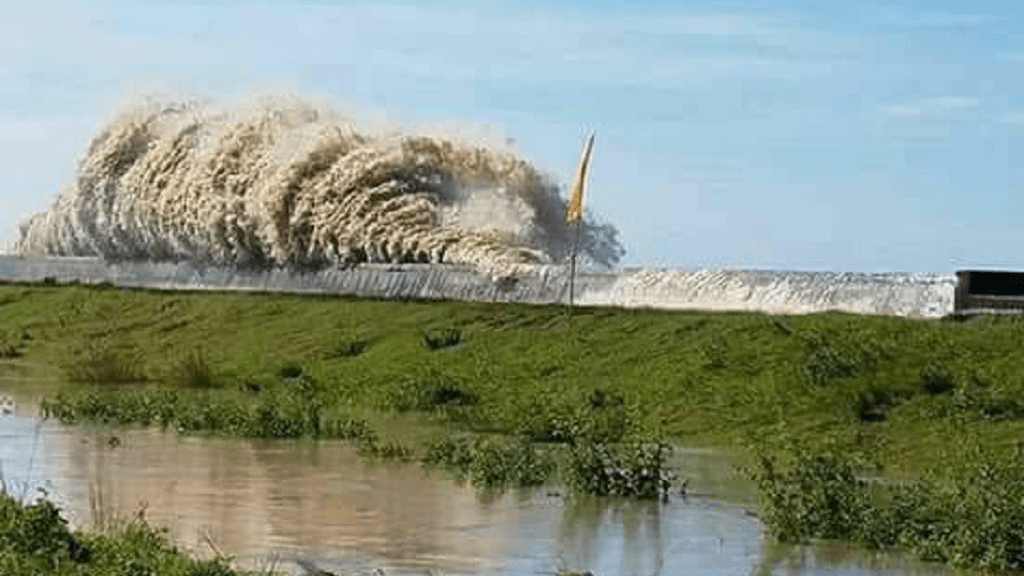The call by some individuals and groups for Guyana to leave its vast hydrocarbon resources in the ground is being viewed as ironic by a scholar at the Florida International University’s Jack D. Gordon Institute for Public Policy. He said as a starting point, Guyana should consider allocating a percentage of its oil and gas revenue to be devoted to tackling climate change via adaption and mitigation efforts. This includes reinforcing the sea wall and passing legislation that ensures that all homes are built or reinforced with building codes capable of withstanding strong storms and flash flooding.
“Further, revenue should continue to be used to build more roads to quicken response times after sudden-onset climate events,” said Wazim Mowla in his most recent column published by OilNOW last week.
In fact, Mowla, a Guyanese American and assistant director of the Caribbean Initiative at the Atlantic Council’s Adrienne Arsht Latin America Center, said as years go by and climate change worsens, there should be an automatic increase in the percentage of Natural Resource Fund revenue used to address climate concerns.
“The argument to keep Guyana’s oil in the ground is ironic, as many have the foresight to see the damaging effects of climate change in the next 10 to 15 years but are blind to the plight developing countries find themselves in today if they cannot access requisite financing that allow them to survive the next decade,” Mowla said.
He was adamant in pointing out that the world still needs oil, and demand is not expected to start tapering off until 2035 before slowing down gradually into the mid-century.
“How then should Guyana see itself in a world of seeming contradictions – fueled by the very resource some are ardent should remain in the ground? The answer is simple. The only meaningful way to stave off the growing effects of climate change is to arm itself and the rest of the Caribbean with the financial resources to adapt to a changing global atmosphere,” he posited.
The new oil producing country will rake in billions of US dollars in the coming years as vast oil fields discovered offshore by ExxonMobil move into production. Two developments are already online and as much as ten are anticipated by the end of the decade.




